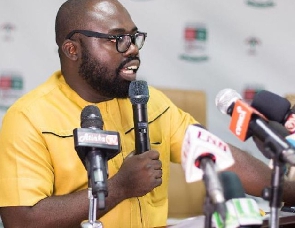Deputy General Secretary of the National Democratic Congress, Peter Boamah Otokunor has disclosed that the 'One district, one factory' policy being implemented by the NPP governement is an NDC initiative.
He says, however, it is being poorly implemented by the NPP government.
Speaking on Okay FM’s 'Ade Akye Abia' program, he disclosed that the project was put on paper by the NDC to revive all defunct factories and also establish new ones to provide jobs for the majority of unemployed Ghanaian youth.
"However, the New Patriotic Party(NPP) after stealing the policy from the NDC has failed to implement it properly," he said.
"They go about commissioning projects that do not even merit a factory, let alone employ people. They are even commissioning projects set up by individuals to take credit for no work done," he added.
He added that this shows how incompetent the NPP government led by the President, Nana Addo Danquah Akufo-Addo has become.
That is why the NDC has put together a team that will put together policies that will alleviate the hardship of Ghanaians.
The One district, one factory is a Government of Ghana policy. It is aimed at creating jobs for Ghanaians through the setting up of factories and industries which will, in turn, move the country towards greater industrialization.
The policy was first introduced to Ghanaians in 2016 as part of the manifesto of the New Patriotic Party of Ghana.
The program received a boost on January 13, 2018, with the commissioning of the Twyford Ceramics factory by President Nana Akufo-Addo at Shama District in the Western region.
So far, One hundred and eighty-one factories have been enrolled under the government’s One District One Factory (1D1F) program since its launch in 2017.
Fifty-seven of them are currently operating, while 22 are still under construction.
Politics of Friday, 25 October 2019
Source: peacefmonline.com













